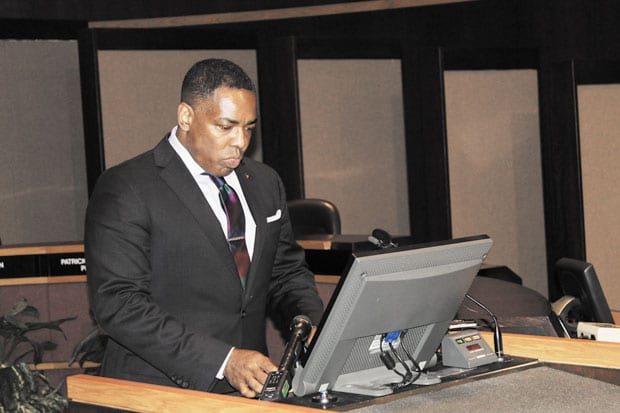
City officials in both Houston and Plano fought hard in 2015 to pass LGBT-inclusive equal rights ordinances. But the battles took far different paths.
Houston’s ordinance was more encompassing, protecting individuals based on 15 classes. Even though the City Council approved it, voters overturned it in a November referendum in which opponents ginned up fear with their “men in the women’s restrooms” mantra that targeted transgender women.
Plano’s ordinance, on the other hand, remains intact, but is less far-reaching and has raised concerns regarding its protections for transgender people. It prohibits “discrimination in places of public accommodation, employment practices, housing transactions and city contracting practices.”
LGBT rights advocates were unhappy with the vast number of exemptions listed in the ordinance. Its broad exclusions and problematic language regarding transgender people particularly irked people.
Anti-LGBT opponents claimed both ordinances allow men to use women’s bathrooms. It wasn’t true in either case. In fact, Plano’s exemptions included bathroom use.
The same right-wingers who managed to sink Houston’s ordinance came north and gathered signatures to file a petition repealing the Plano ordinance, just like they did in Houston. But Plano city officials declared all of the signatures invalid to stave off a referendum. Still, opponents secured victory in May elections when two of the ordinance’s opponents were elected to the council.
In Houston, HERO spent most of the year mired in costly legal battles, culminating in a July decision by the Texas Supreme Court to halt its enforcement. The ruling forced the city to either repeal the ordinance or put it on the ballot. The council soon afterward voted to put it on the ballot, leading to the November defeat.
The ordinance, also known as Proposition 1, would have prohibited discrimination in employment, housing and public accommodation on the basis of 15 protected classes, including race, gender, pregnancy, religion, sexual orientation, gender identity, disability and military status. Religious institutions were exempted, but violators of the ordinance could have been fined up to $5,000.
HERO’s opponents called the ordinance’s defeat a turning point in the social conservative cause.
“This is a national game-changer,” said Jonathan Saenz of Texas Values Action, which opposes LGBT equality. Claiming the campaign’s success could lead to a nationwide blueprint for other campaigns opposing LGBT rights, he added, “[It was] massive victory for common sense, safety and religious freedom.”
After declaring victory in Houston, anti-LGBT activists set their sights on Dallas, where the city council voted unanimously to revise the city’s nondiscrimination ordinance to include gender identity and expression. That vote, taken at the council’s regular weekly meeting, came after a year of deliberation and meetings by the city’s LGBT Task Force.
But don’t bother telling that to rookie Tea Party state Sen. Don Huffines, a Republican. In a statement to Dallas Voice Huffines called the ordinance the “product of an obscure city task force and a closed-door meeting.”
Unlike ordinances, though, facts are stubborn things. At least that’s how Dallas Councilman Philip Kingston said it. He outright called Huffines and Patrick liars.
“The lieutenant governor is infamous for fomenting mob mentality against the interests of minorities. In Dallas we believe in equal protection under law,” Kingston said.
Dallas’ ordinance continues to stand strong.
This article appeared in the Dallas Voice print edition January 1, 2016.
The top stories of 2015 — Plano passes rights ordinance; Houston shoots down HERO
















